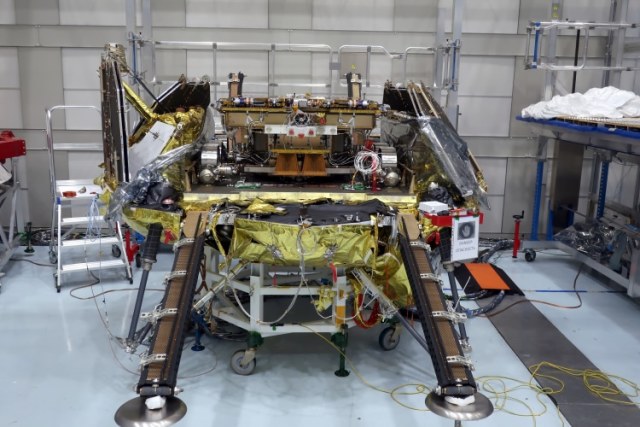According to the Head of the Department of Space Sciences of the D. V. Skobeltsyn Research Institute of Nuclear Physics (NIIYAF) The Moscow State University of Vladimir Kalegaev, the violation of scientific ties will lead to a slowdown in world development from which everyone will suffer
MOSCOW, August 9. /tass/. The refusal of the European Space Agency (ESA) to cooperate with Russia on the ExoMars-2022 project ("ExoMars"), aimed at studying Mars using spacecraft, will lead to a delay in its implementation, according to the first forecasts, for four years. This was announced on Tuesday by the head of the Department of Space Sciences of the D. V. Skobeltsyn Research Institute of Nuclear Physics (NIIYAF) MSU Vladimir Kalegaev.
"The disruption of scientific ties will lead to a slowdown in world development, while everyone will suffer. The isolation of the Russian research program will have a negative impact on research in the field of space physics, primarily in Russia itself. Projects of foreign research centers, where the participation of Russian specialists is frozen, will also experience difficulties. Even now, the rupture of cooperation with Russia in the ExoMars project leads to a delay in this space mission, according to the first forecasts, for four years," said Kalegaev, whose words are quoted on Tuesday on the website of the Russian Academy of Sciences (RAS).
Another area of research that may suffer due to the breakdown of international cooperation, according to the scientist, is the study and forecast of space weather. Currently, data from Russian and foreign meteorological and scientific satellites are used to monitor these phenomena, and some of these satellites, for example, ACE, DSCOVR, SDO, are unique. "With restrictions on access to the measurement data of these devices, critical information for space weather forecasting will be missing," the scientist explained.
Kalegaev also believes that it does not make sense to create national space weather systems - it is more effective, in his opinion, to combine efforts and create a single global system for preventing space threats. According to the researcher, such work is currently being carried out at the level of the International Meteorological Organization (WMO), the UN (COPUOS Commission), COSPAR (PSW Space weather Section).
"Although cooperation at the level of scientific organizations has practically ceased today, we should maintain direct contacts with foreign scientists and scientific groups, hoping for the restoration of scientific cooperation in the future. Only overcoming geopolitical tensions can contribute to the restoration and development of full-fledged scientific research," Kalegaev believes.
About the project
ExoMars is a joint program of the European Space Agency (ESA) and Roscosmos for the exploration of Mars, consisting of two projects - the ExoMars-TGO probe and the Rosalind Franklin rover. The first spacecraft arrived safely into Mars orbit in October 2016. The launch of the second half of the ExoMars mission was originally scheduled for 2018, but later the launch was postponed to 2020, and then to 2022. At the same time, in July, ESA Director General Josef Aschbacher announced that the ESA Board of Governors had decided to terminate cooperation with Roscosmos under the ExoMars program. Commenting on this information, Roscosmos noted that Russia will be able to implement its part of the project independently.

